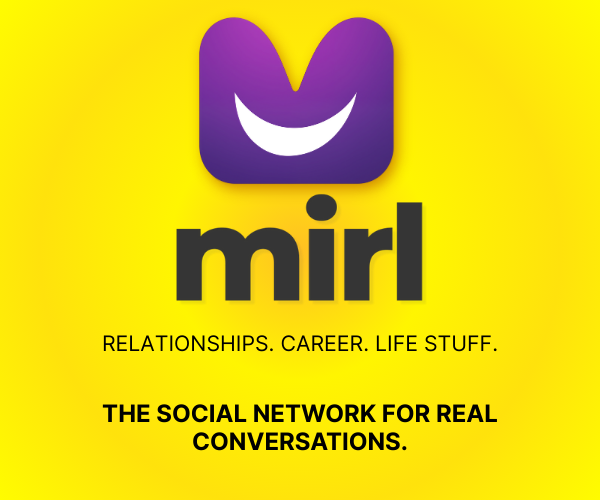Free Use Relationship: What It Means, the Psychology Behind It & 43 BIG Rules

Curious about the free use relationship? Discover how it works, the psychology behind it, and the rules to keep it hot and healthy.
If you’ve been intrigued by the buzz surrounding free use relationships, you’re not alone. This unique arrangement isn’t just about sexual chemistry; it’s an exploration of trust, boundaries, and open communication.
So, if you’ve been curious to learn how this all works, we’ve got you covered, from setting ground rules to the do’s and don’ts that will make even seasoned relationship pros nod in approval.
[Read: Couples kink list – 52 freaky and weird sexual fetishes many people indulge in]
What is a Free Use Relationship, Anyway?
Hold the phone, 1.5 million members on the r/freeuse Reddit community? Yup, you read that right. Free-use relationships have piqued the curiosity of many, but what exactly are we talking about when we say “free use?”
In a free-use relationship, one partner grants the other the freedom to engage in sexual activities without the need for explicit, moment-to-moment consent. Think of it as a sexual all-access pass, but, and this is a big “but”, it’s built on a foundation of mutual agreement and boundaries. [Read: 36 sizzling sex life secrets to spice up your bedroom and leave you horny 24/7]
In your average relationship, sexual encounters often start with a ritual, you know, the do-you-wanna-have-sex guessing game, followed by subtle, or not-so-subtle flirting, and then maybe some foreplay. It’s like a slow dance: there are steps to follow and parts to align. But in a free-use relationship, that assembly manual gets tossed out the window.
How Does a Free-Use Relationship Even Work?
Here’s how it works: If one partner is in the mood, there’s no need for the charade. They can simply express their desire to the other partner. “Horny? Let’s not make a big production out of it,” is the prevailing sentiment.
And it’s not just about the freedom to initiate sex; it’s about the freedom to do so regardless of what the other person is doing.
Doing the dishes, watching a movie, or even working from home? In a free-use relationship, the agreement often stipulates that one partner consents to be sexually available at all times, no matter what they’re up to.
This eliminates the need for lengthy negotiations or setting the mood; it’s all systems go, as long as the boundaries and rules previously set are respected.
[Read: How to initiate sex and 25 seductive ways to take the lead in bed]
Of course, this doesn’t mean that the “free-to-use” partner becomes an object devoid of will. That’s where the concept of ongoing consent comes into play. It’s a standing agreement but can be paused or stopped at any time, by either party. No questions asked, no hard feelings, well, unless those were part of the agreed-upon terms!
Before You Jump In to Free Use
If you’ve been hearing whispers, or scrolling through wild Reddit threads, about the free use relationship, you’re not alone. What was once an underground kink has quickly entered the mainstream, thanks to TikTok algorithms, more open conversations about power dynamics, and a growing curiosity around consensual non-consent.
But let’s be clear: a free use relationship isn’t about one partner having 24/7 access like a walking vending machine. At its best, this setup is built on trust, psychological safety, and crystal-clear boundaries. At its worst, it can blur lines and leave emotional damage.
So before you dive into the rules and logistics, ask yourself: is this dynamic something you’re ready for emotionally, not just sexually?
📚 Source: Moser, C., & Kleinplatz, P. (2006). Sexual Satisfaction and S/M Behaviors.
Ground Rules and Boundaries of Free-Use Relationships
Before you venture into the tantalizing world of free-use relationships, it’s vital to lay down some ground rules. We’re not talking about unwritten rules that everyone secretly knows but no one speaks about. Nope, we’re talking about explicit agreements that are as clear as a summer sky.
Here’s a list to get you started:
1. Be S.M.A.R.T.
Be Specific, Measurable, Achievable, Relevant, and Time-bound in your agreements. If there are times of the day, week, or month that you don’t want to be free to use, lay that out clearly and as early as possible. It ensures that you’re not just making a vague commitment but defining the exact boundaries, making them easier to follow and respect.
[Read: 23 secrets to set personal boundaries and guide others to respect them]
2. Negotiation process
Borrowing a leaf from BDSM practices, sit down and negotiate the terms. Discuss soft limits, hard limits, and safewords. This is your chance to get into the details, so no topic should be off the table.
3. Ongoing consent
Consent isn’t a one-time ticket. It’s ongoing, and either party should have the freedom to withdraw at any moment. Make this clear from the start, and revisit it regularly to ensure everyone is still comfortable. [Read: BDSM – What it is, 54 sexy tips and tricks, and BDSM ideas to try for the first time]
4. No surprises
While the essence of a free-use relationship is availability, that doesn’t mean surprising your partner with new or unspoken expectations. Discuss situations where initiating is acceptable and where it’s not, like that awkward family dinner at your aunt’s place, for example.
5. Safe words or signals
Sometimes words escape us, so agree on a safeword or even a non-verbal signal that means ‘stop immediately.’ This adds an extra layer of security to your free-use relationship, ensuring that you’re both happy and safe.
6. Time and place
Decide on specific settings where this agreement is valid. Maybe it’s within the four walls of your home or during certain hours of the day. Being explicit about the when and where keeps misunderstandings at bay.
7. Periodic review
Set times in your weekly or monthly schedule to revisit these rules, because hey, we change, and so do our preferences. Make it a point to assess whether the free-use relationship is still meeting both partners’ needs and adjust accordingly. [Read: 36 signs of disrespect in a relationship that reveal a lack of love and respect]
8. Health and wellness
Let’s face it; no one is in the mood when they’re down with the flu. Make it a rule that the free-use relationship takes a backseat when someone is unwell. Trust us, it’s better for both parties in the long run.
9. Respect over desire
The urge might be there, but respect comes first. That means honoring your partner’s wishes even if they go against your desires at the moment. Remember, a free-use relationship is a two-player game; it doesn’t work if one person keeps hogging the joystick.
10. No third-party involvement without consent
Some people enjoy adding an audience or additional participants to their sexual escapades. That’s cool, but it needs to be explicitly discussed and agreed upon. This is not a plot twist you want to spring on someone unannounced. [Read: 21 must-know ways to ask someone for a threesome and join you in bed]
11. No recording or photos without agreement
While capturing the moment might sound enticing, it’s not something to do on a whim in a free-use relationship. Both parties should agree on what is and isn’t okay to record or photograph, and how those recordings will be stored or shared.
12. Mental and emotional check-ins
Just because the physical aspect is front and center doesn’t mean you should neglect the emotional. Periodic mental and emotional check-ins can go a long way in maintaining a healthy and enjoyable free-use relationship.
13. Communication channels
Decide how you’ll communicate, especially in complicated scenarios. Is it a text? A specific look? This may sound trivial, but clear communication is the bedrock of any successful free-use relationship. [Read: 42 secrets to communicate better in a relationship and ways to fix a lack of it]
14. Introduce gradual changes
Spontaneity may be the spice of life, but in a free-use relationship, it’s better to gradually introduce any changes to the agreed-upon rules. Both partners should be comfortable with any new elements.
15. Safe zones
Establish areas or situations that are off-limits for sexual activity. Maybe it’s the car or a public setting. Being explicit about your no-go zones will help avoid uncomfortable situations.
16. Discuss hormonal shifts and libido changes
Desire isn’t static — it changes with cycles, stress, birth control, medication, and mental health. A smart couple talks about what affects their libido and adjusts their free-use agreement accordingly.
📚 Source: Graham, C. A. (2010). The effects of hormonal contraceptives on sexual desire. https://doi.org/10.1016/j.yfrnec.2010.01.002
17. Talk about aftercare style
Aftercare isn’t one-size-fits-all. Some people want cuddles. Some want snacks. Some want space. Figure out how each of you decompresses emotionally and physically after sex, especially if one partner is in a submissive or passive role.
📚 Source: Williams, D. J., et al. (2014). BDSM practitioners in the US
18. Understand and plan for “consent fatigue”
Yes, free use dynamics eliminate repetitive asking, but ironically, that can lead to burnout too. When one partner feels obligated to always say yes, it builds hidden pressure. Plan for “off days” and normalize pulling back without guilt.
📚 Source: Zurbriggen, E. L. (2000), Power and aggression in sexually coercive behavior
19. Redefine what “initiation” looks like
One partner may have the freedom to initiate, but it doesn’t mean they’re the only one who should. Balance things out by discussing what makes each of you feel wanted and desired. Mutuality is sexy.
Do’s and Don’ts: The Unspoken Etiquette of Free Use Relationship
So you’ve hashed out the ground rules and you’re ready to take the plunge. But hey, don’t leave your good behavior at the door. Here are some do’s and don’ts to guide your journey into this intriguing relationship style.
1. Do: Be mindful of non-verbal cues
Paying attention to your partner’s body language can offer clues about their comfort level. In a free-use relationship, this is especially important because the framework may not always allow for explicit verbal communication. [Read: 37 secrets to read people by their body language and expressions instantly]
2. Do: Debrief after encounters
Take a few moments post-engagement to discuss what worked and what didn’t. This quick chat serves as a temperature check, ensuring both parties feel respected and fulfilled.
3. Do: Keep an emergency ‘break glass’ plan
While you’ve discussed ongoing consent, always have a contingency plan for when something goes unexpectedly awry.
Whether it’s someone changing their mind last minute or someone’s feelings getting hurt by what happens during intimacy, have a plan in mind for how you’re going to repair the damage and emerge with your relationship as strong as ever. It adds an extra layer of security and trust in the relationship.
[Read: 28 heartfelt ways to say you’re sorry and apologize to someone you love]
4. Do: Update on external factors
If either of you is on medication or has an external factor that may affect your sexual relationship, make it known. Transparency is vital, especially when hormones and libidos are in play.
5. Don’t: Assume
If there’s any doubt, ask. Whether it’s a new move or a variation in routine, never assume your partner is comfortable with it without confirmation.
6. Don’t: Neglect aftercare
In a free-use relationship, it can be easy to overlook the importance of aftercare, the emotional and sometimes physical care given after intense sexual encounters. Don’t skimp on this; it’s more essential than you might think. [Read: 26 sexy secrets to be dominant in bed, control your partner, and not hurt them]
7. Don’t: Use it as a cop-out for other responsibilities
Being in this type of relationship doesn’t excuse you from other commitments or emotional availability. Sure, the physical aspect is more straightforward, but that doesn’t mean you can ghost on the emotional side of things. If you think ghosting is a no-go in traditional relationships, it’s a hard stop here too.
8. Don’t: Forget about safe sex
Just because it’s a free-use relationship doesn’t mean you’re free from practicing safe sex. Always make sure to prioritize safety and health for both parties. [Read: 29 safe sex secrets and nasty dangers of unprotected sex most don’t know]
Positive and Negative Impact of Free Use Relationship
While a free-use relationship can be incredibly exciting and liberating, it’s crucial to be mindful of its longer-term impact. After all, what’s the point if it leaves you emotionally drained or psychologically troubled?
1. Enhanced communication skills
The nature of a free-use relationship necessitates a level of open and honest communication that can improve how you interact not just with your partner but also with others.
2. Deepened trust and intimacy
The requirements for ongoing consent and boundary discussions often result in a closer emotional connection, enriching the relationship in multiple dimensions. [Read: How to build trust in a relationship and learn to be loyal and loving]
3. Exploration and self-discovery
The space a free-use relationship provides for sexual and emotional exploration can be a gateway for personal growth and understanding one’s boundaries.
Seriously, there is so much that you can learn about yourself when you take conventional ideas of consent and sexual boundaries and flip them on their head!
4. Empowerment
For some, the freedom and ongoing consent in this type of relationship can be empowering, making them feel more in control of their own sexuality. [Read: Sex-positive feminism – what it is and why we must embrace the movement]
5. Enhanced sexual satisfaction
The very nature of a free-use relationship often means more sexual activity, so if you’re in a bit of a dry spell within your relationship, making your relationship a bit more free-use might be just the spark you need to reignite those passions.
6. Reduced sexual inhibition
The agreement between partners often allows for a safe space where both can explore their desires without the cloud of societal judgment.
7. Building resilience
The structure of a free-use relationship can teach partners how to navigate conflict and discomfort, building emotional resilience over time. [Read: Relationship arguments – 38 tips and ways to fight fair and grow closer in love]
8. Lessens the guessing game
Free use relationships eliminate many of the rituals and dances usually associated with initiating sexual activity. Say goodbye to decoding cryptic texts or ambiguous body language; here, consent and intentions are clearly established, cutting through the maze of “Do they want to or not?”
9. Stress reduction
For some people, sexual activity is a proven stress reducer (📚 source). In a free-use relationship, the more frequent opportunities for sexual activity can serve as an effective way to manage stress.
Embarking on this unique relationship journey can result in shared experiences that further strengthen the emotional bond between partners.
11. Risk of sub drop
The emotional lows that can follow the highs of D/s activities can be severe if not handled carefully, leading to depressive feelings or irritability. [Read: Domestic discipline – how it works and 29 BDSM rules and tips for beginners]
12. Potential for ‘topspace’ hazards
The euphoric state of dominants can cloud their judgment, affecting their decision-making skills and potentially putting the submissive partner at risk.
13. Emotional drain or burnout
The constant upkeep of boundaries and ongoing consent can lead to emotional fatigue or even relationship burnout.
14. Boundary violations
The constant negotiation and ongoing consent in a free-use relationship could lead to accidental boundary crossings, causing emotional harm. It’s easy to get carried away in the heat of the moment, mistaking a previously agreed-upon limit as something more fluid.
When this happens, not only is the immediate experience tainted, but it can also cast a shadow on the trust and intimacy that you’ve built up with your partner.
15. Jealousy and insecurity
The level of sexual freedom in a free-use relationship could trigger feelings of jealousy or insecurity, harming the relationship’s foundation. While one partner might be totally on board with the concept, seeing or knowing that their partner is engaging in sexual activities without the usual romantic prelude could stir up uncomfortable emotions.
Over time, these feelings could escalate and cause a rift between partners, requiring extra emotional work to mend. [Read: Jealousy in a relationship – how to accept, deal, and overcome it in love]
16. Guilt or shame
Cultural or societal judgments about the nature of a free-use relationship can lead to feelings of guilt or shame. You might find yourself battling internalized stigmas or worrying about how others would perceive your relationship if they found out.
These feelings can cast a dark cloud over what might otherwise be a fulfilling dynamic, hampering the freedom and openness that the relationship is built upon.
17. Risk of co-dependency
The intense emotional and sexual interaction in a free-use relationship could risk creating an unhealthy dependency between partners. Because the dynamic often eliminates the “guessing game” and foreplay, it might become a default coping mechanism for stress, emotional discomfort, or even boredom.
This over-reliance on sexual interaction for emotional equilibrium can gradually morph into co-dependency, jeopardizing the overall health of the relationship. [Read: Enmeshed relationship – 66 enmeshment signs in couples and ways to heal in love]
18. Social stigma
As mentioned earlier, the unconventional nature of a free-use relationship can make it a magnet for social judgment or stigma. The last thing you need is side-eye from your neighbors or hushed conversations at social gatherings.
While what happens between two consenting adults is nobody’s business but their own, the weight of societal disapproval can still affect your emotional well-being and how you view your relationship.
19. Potential for abuse
The dynamic of a free-use relationship could be manipulated into a form of emotional or sexual abuse if not carefully monitored. Because the boundaries in this relationship style are different from more conventional relationships, it may create gray areas where consent becomes murky.
When not vigilantly guarded, this could open the door for manipulative behaviors or power imbalances, making it crucial to continuously communicate and reassess boundaries. [Read: 42 signs and ways to see manipulative behavior and stop being used by people]
20. Financial strain
Investing in accessories or environments that cater to a free-use relationship can become financially taxing over time. For instance, some couples might splurge on high-end sex toys, BDSM furniture, or even book adult-only resorts to create the perfect setting for their kink.
While these purchases can certainly enhance the experience, they can also quickly add up, causing financial strain that could spill over into other areas of the relationship.
Have an Open Conversation With Your Partner
If you find that the idea of a free-use relationship resonates with you, don’t shy away from that curiosity. Instead, take it as an invitation to have an open conversation with your partner.
Discuss your boundaries, establish ground rules, and be crystal clear about consent. Remember, any relationship, but especially one as nuanced as a free-use relationship, is a two-way street built on ongoing communication and mutual respect.
So, Is a Free Use Relationship Right for You?
A free use relationship might sound like pure fantasy at first, and for many, it is. But for couples who prioritize trust, communication, and mutual respect, it can become a deeply fulfilling dynamic that intensifies intimacy and connection.
Still, it’s not for everyone. If you’re considering this path, don’t just think about how hot it sounds. Think about how safe, understood, and respected you’d feel living it out, day in and day out.
📚 Source: Gagnon & Simon’s theory of sexual scripts reminds us that what turns us on isn’t just biology, it’s psychology, society, and storytelling too. So if a free use relationship fits your story, write it well.
And remember, the sexiest thing in any kink dynamic isn’t control or surrender, it’s knowing that both people chose it every single time.
[Read: 90 sexy and dirty would you rather questions to make anyone horny AF]
And hey, if this is your fetish, go ahead and explore it! The only way you’ll ever know if a free-use relationship is right for you is by taking that plunge, consensually, of course.



















